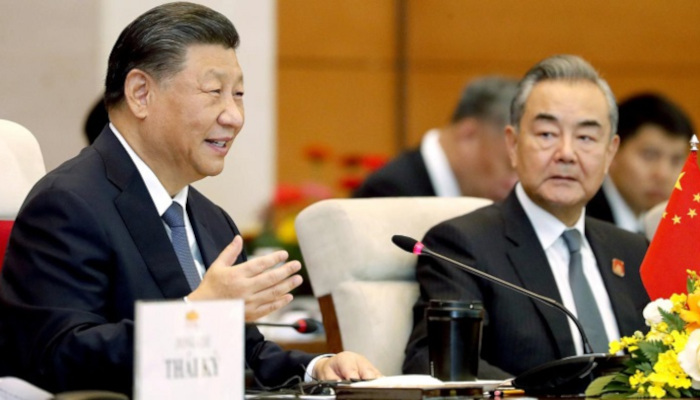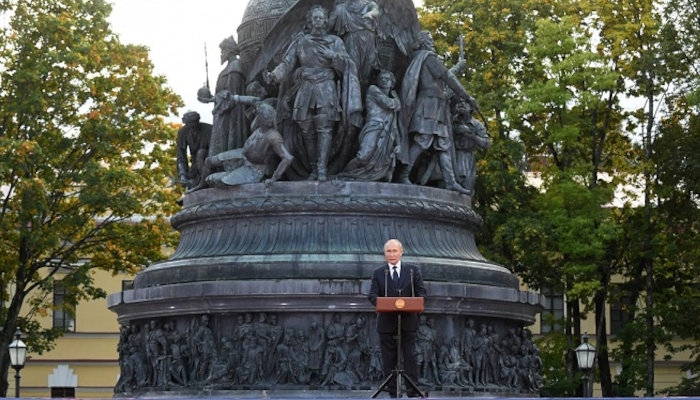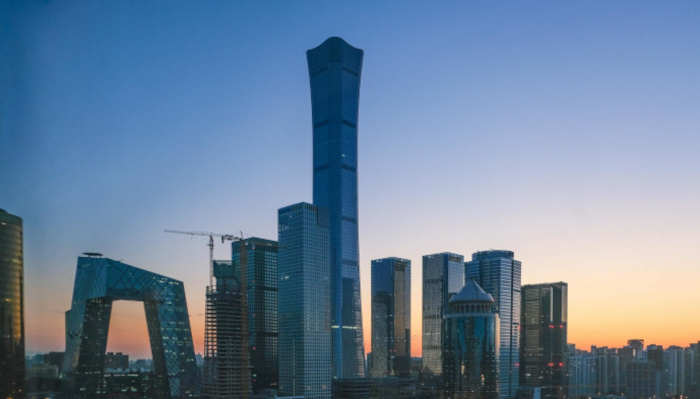
A substantial shift in China’s foreign approach may be underway, although it is still unclear where it will lead.
Within a few hours, President Xi Jinping promoted a new Minister of Defense, Dong Jun, sacked nine senior generals, and set a new path for foreign politics. Xi vowed to “seize strategic opportunities and further enhance China’s ‘international influence, appeal, and power’ to shape a rapidly changing world by strengthening Communist Party control of foreign affairs and standing firm against ‘bullying’ and ‘hegemonism’ from the West.” [1]
The rare closed-door party meeting on future foreign policy direction ended on December 28, coinciding with the military reshuffle. Xi reportedly urged diplomats and officials to “break new ground,” “rally the overwhelming majority” of the world, and adhere to the “fighting spirit.” In fact, Beijing believes that “with the Ukraine war and the Israel-Gaza conflict, China faces strategic opportunities to act as a peace broker and leader of the Global South.”
The nine demoted generals are connected to the Second Artillery, the army department in charge of the rocket force and the space program, including the weather balloons. One Chinese weather balloon drifting off at lower altitudes in U.S. airspace in February 2023 caused a dispute between China and the United States. U.S. Secretary of State Anthony Blinken canceled his scheduled trip to China, and bilateral ties spun into turmoil for months until the November summit in San Francisco between Xi and U.S. President Joseph Biden reset the course.
In June, Foreign Minister Qin Gang was sacked without much explanation, and in August, Defense Minister Li Shangfu, a veteran of the Second Artillery, faced the same fate. It is unclear whether their demotions are related to the balloon incident.
Dong was not part of the seven-man strong PLA (People’s Liberation Army) Central Military Commission but was chosen outside of it. This might hint at further purges in the military leadership. Xi serves as the chairman of the Commission. The present reshuffle is generally attributed to corruption and misallocation of funds. The expensive missile and satellite program could then not perform as well as intended.
Dong is the first official with actual Navy experience to assume the role of Minister of Defense. The Navy oversees the two most delicate and urgent theaters for China – Taiwan and the South China Sea. These are considered regional challenges in theory, although they have global implications.
The Second Artillery, with its nuclear missile force and satellites, is responsible for broader strategies, including the potential for a nuclear strike against the U.S. The change in leadership between the two men could bring different perspectives to the helm of the military, charged with envisioning comprehensive foreign affairs scenarios. Dong’s semi-official biographies highlight his diplomatic experience handling issues with foreign countries.
Li Shangfu’s diplomatic efforts were hindered from the beginning, as the U.S. previously had blacklisted him for arms trafficking. During the balloon incident, U.S. Secretary of Defense Lloyd Austin reportedly attempted but failed to reach Li by phone for clarification.
Traditionally, in China’s system, the military is primarily responsible for analyzing foreign politics, while diplomats handle its implementation.
Xi managed to carry out these significant personnel and direction changes without apparent opposition from within the party and without recourse to a Central Committee plenum. A plenum usually ensures that the entire party is aligned with significant changes. The absence of one could indicate Xi’s firm grasp on crucial policies.
[1] https://www.scmp.com/news/china/diplomacy/article/3246631/fighting-spirit-xi-jinping-reveals-chinas-push-global-power-after-rare-closed-door-meeting-foreign









